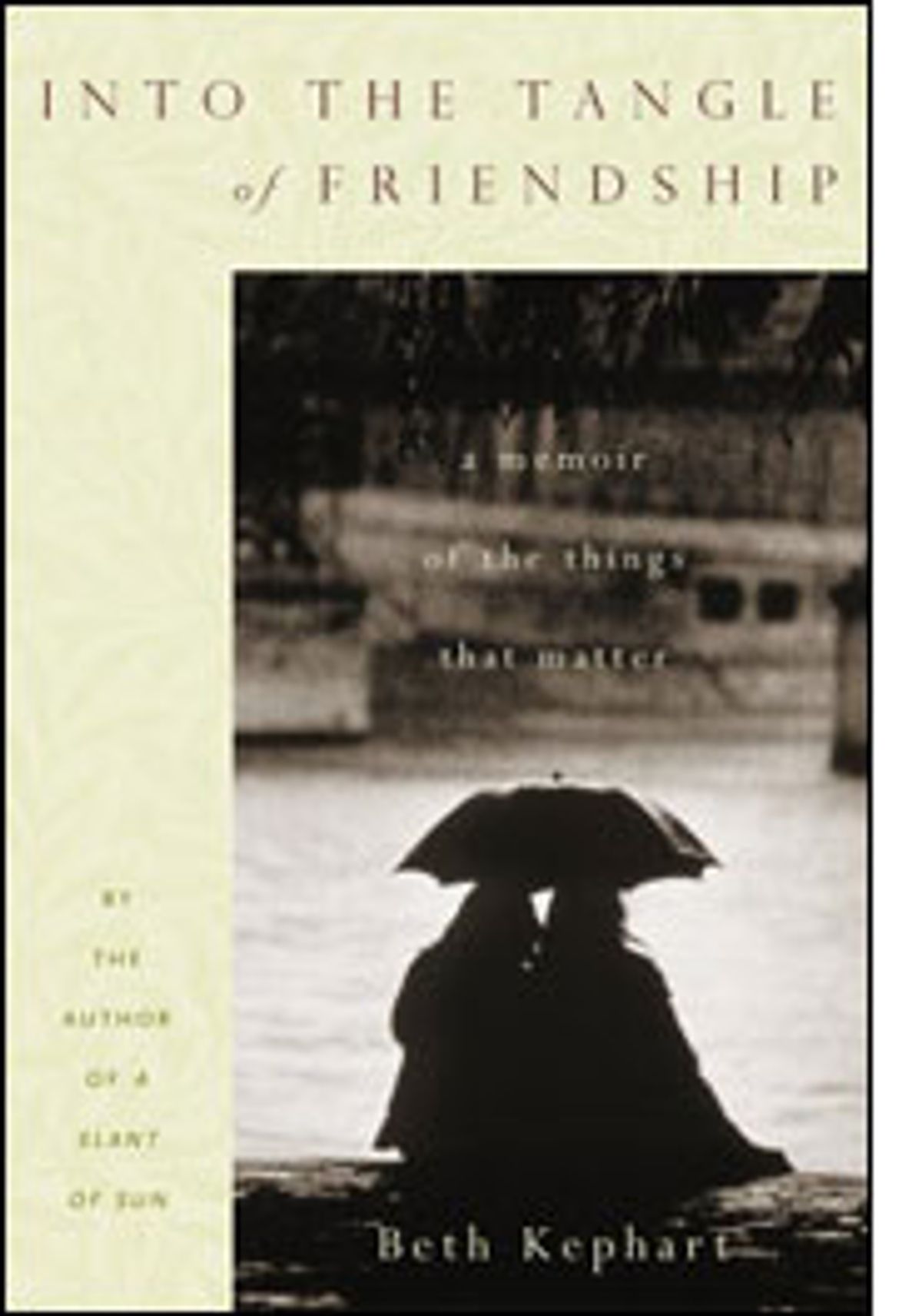Friendships are messy experiences that don't adhere to the fundamental rules of narrative. Romances have neat beginnings (a kiss) and clear endings (usually a kiss-off), but friendships meander -- dwindling, reviving, sometimes expiring gradually, without ceremony. Perhaps because friendships are such a free-for-all, we don't easily recover from the bungled ones. They gnaw at us.
This "terrible haunting" of disrupted relationships is central to Beth Kephart's heartfelt meditation on the role friendship plays in our lives. She opens "Into the Tangle of Friendship" with an unexpected telephone call from Joanne, her former best friend, the one who taught her about music, menorahs and "the fine art of passing notes in school." Twenty years ago, Kephart broke with Joanne in a fit of adolescent self-righteousness -- after Joanne attended the prom with the blond runner Kephart loved from afar. "I didn't realize that you can't make old friends," Kephart now muses, "that you can only lose them, that in losing them ... you walk around with a void inside that you can never adequately explain."
Kephart's storytelling avoids the narrowly personal approach that is fashionable in memoirs today. In a likably humble gesture, she includes the viewpoints of friends and favorite writers to bolster her case that all our relationships matter. "This story, I know, is everybody's story, for the capacity and desire for friendship are scripted right into our genes."
In this paean to the multiple uses of friendship, Kephart rejoices in how children prepare for painful social situations by role-playing with their buddies. She discusses her otherwise antisocial husband's lasting friendships with boys he knew back in El Salvador, relationships that confirm the reality of his own childhood memories. And she rhapsodizes over "discrepant friendships," those often ephemeral connections between adults and children or the middle-aged and the very old.
This book is invigorating and odd, earnest and endearing. The most interesting tales are the least saccharine, the explorations of how "friendship is a benefaction and a weight." In one of the most powerful vignettes, Kephart turns her attention to the sad plight of Andree, her former neighbor and dear friend. When Andree learns that her husband has terminal cancer, Kephart is unable to bring comfort. "If you think friendship is an organ of convenience, think again: it takes its toll. As we grow older, there will be more of life to take head on or divert or despise or explain."
Unfortunately, Kephart's wisdom sometimes suddenly gives way to sentiments so jejune they sound like she has plundered a teenager's diary. ("What do you think about when no one's looking? I'll ask Joanne ... And what roots you to this earth, Joanne? And how often do you marvel at the sky?") Despite many pages of buildup, Kephart's reunion with her old friend is a disappointment to the reader, a story that fizzles. It's unclear what these two adults have in common other than a shared relief at no longer being estranged. "We grow too old to lose old friends, and Joanne knows this as well."
What makes this memoir so lovable, awkward passages notwithstanding, is its radical sunniness. Kephart's sprightly tone is a departure from the disarming honesty of "A Slant of Sun," her memoir of struggling to help her only son, Jeremy, who at 2 was diagnosed with a Kafkaesquely nonspecific "pervasive developmental disorder." The roughest times now behind them (Jeremy overcomes many of his quasi-autistic tendencies and learns to socialize), Kephart savors and celebrates the joys of everyday life that her family has only recently reclaimed.
Fans of "A Slant of Sun" will find the author every bit as ardent and humane this time around. In the end, Kephart succeeds at drawing a stirring picture of our humanity through the prism of her own varied relationships. "What do any of us know about friendship, isn't that the question here? What can we make of how it changes over time, how it is about wonder at first, then self-definition, then survival, how it is always about comfort, about simply being here, alive?"



Shares